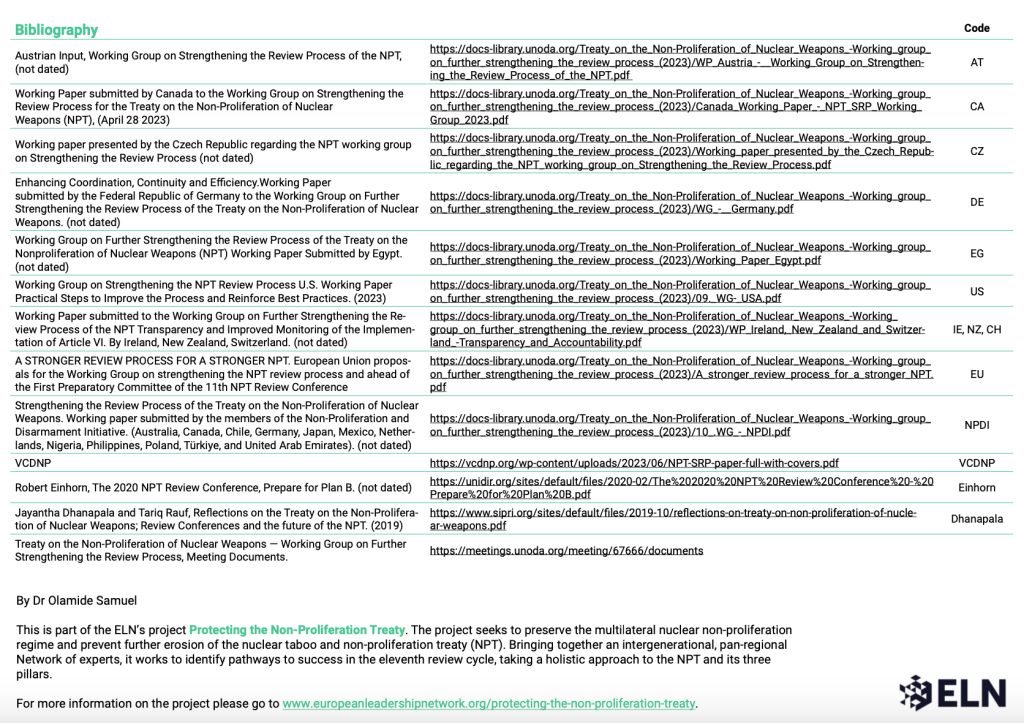
Protecting the Non-Proliferation Treaty
Our intergenerational Network is setting out to preserve the multilateral nuclear non-proliferation regime and prevent further erosion of the nuclear taboo and non-proliferation treaty (NPT). We’ll work to identify pathways to success in the eleventh review cycle, taking a holistic approach to the NPT and its three pillars.
Why?
International structures are resilient but not indestructible. The multilateral arms control regime is facing challenges and setbacks and requires investment. In 2018, US President Trump withdrew from the Joint Comprehensive Plan of Action (JCPOA), which placed restrictions on Iran’s nuclear programme. In 2019, we witnessed the end of the Intermediate-Range Nuclear Forces (INF) Treaty, which had eliminated an entire category of nuclear weapons since the 1980s. And today, the renewal of the last remaining treaty limiting US and Russian nuclear arsenals, New START, is under threat.
The Non-Proliferation Treaty is the cornerstone of the global nuclear non-proliferation regime, enhancing stability and transparency and preventing nuclear arms races. Our intergenerational network will seek to identify pathways to success in the coming review cycle leading to the 2026 Review Conference, helping to strengthen this critical treaty.
How?
We will be multifaceted in our approach, supporting relevant initiatives to guard against losing ground the treaty has made, identifying and pursuing new pathways to diplomatic success, and investing in the next generation of arms controllers.
We will deploy our Networks of experts, expand, and establish sub-working groups focusing on the areas members deem the most pressing, provisionally concentrating on enhancing consultations in the NPT Review Cycle, reinforcing the nuclear taboo in line with recent statements made by the P5 and G20, and considering the implications of a changed European and global security environment on the non-proliferation regime.
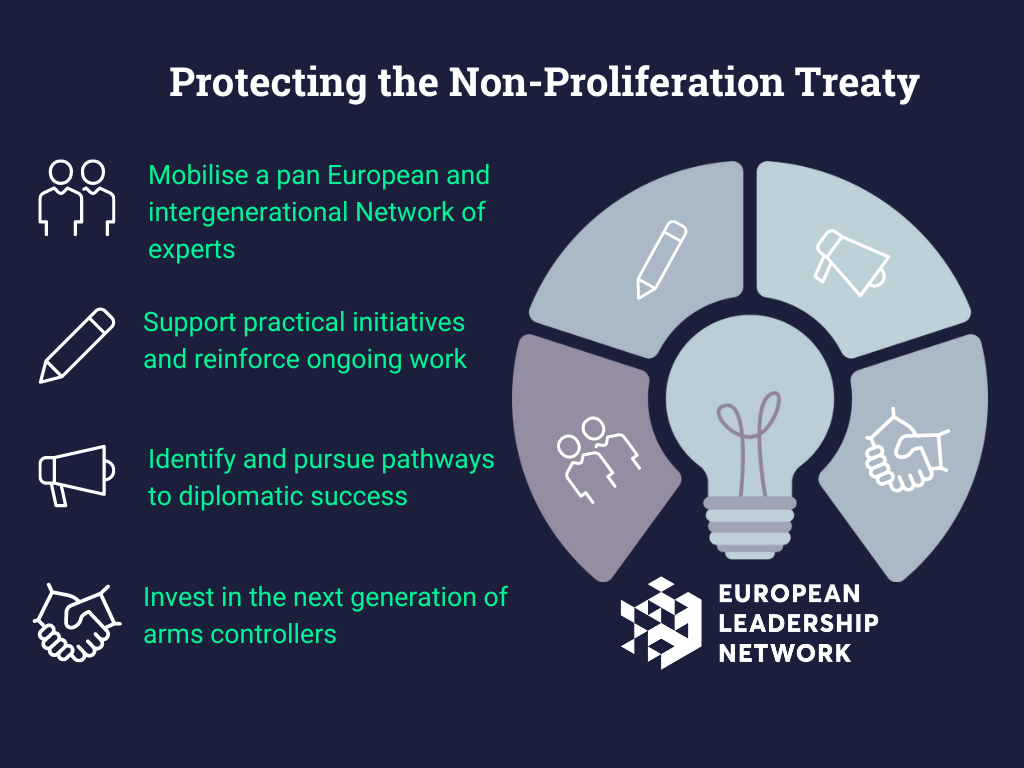
Preparatory Committee (PrepCom) for the 2026 Review Conference (31 July–11 August 2023)
This table provides an overview of State Parties’ proposals submitted to the Working Group on further strengthening the NPT Review Process.

Patricia Jaworek
Senior Programme Officer, Global Nuclear Policy Programme, NTI

Adam Kobieracki (1957-2024)
Former Director of the OSCE Conflict Prevention Center and former NATO Assistant Secretary General for Operations

Mariia Koroleva
Consultant at the United Nations Office for Disarmament Affairs

Ananya Agustin Malhotra
Research Fellow at the Quincy Institute for Responsible Statecraft

Tom McKane
Former Director General for Strategy and Security Policy, Ministry of Defence

Carlo Trezza
Former Ambassador to the Conference on Disarmament, Former Chairman of the Missile Technology Control Regime

Olamide Samuel
Special Envoy of the Executive Secretary of the African Commission on Nuclear Energy (AFCONE)

Ahmet Üzümcü
Former Director-General of the OPCW, Former Permanent Representative of Turkey to NATO

Maren Vieluf
PhD Researcher at the Foreign Policy Lab of the University of Innsbruck
Project publications
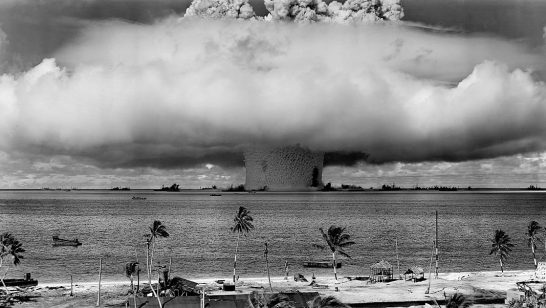
The NPT needs a common understanding of “nuclear threats”: Questions and tasks for the 11th NPT Review Cycle
YGLN members Maren Vieluf and Ananya Agustin Malhotra argue that NPT states need to start talking about whether or not “defensive” and “offensive” nuclear threats can be distinguished. If NPT states can find agreement on this matter, it could bridge the gap between states condemning any and all nuclear threats under any circumstances and those states that stand firmly behind “defensive” nuclear threats and allow for further progress to be made in the 11th NPT Review Cycle.
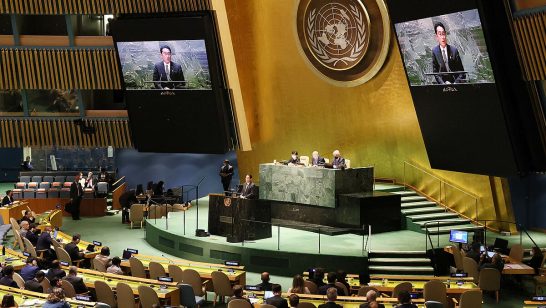
Why and how the NPT must prepare for an arms control interregnum in the post-New START era
The defining challenge of the arms control interregnum is to ensure the NPT survives Russian brinkmanship and Chinese ambivalence, writes Maximilian Hoell. He argues that supporters of the NPT must face a simple choice: join forces to uphold the treaty to the extent possible and prevent its erosion or risk the treaty’s collapse. He argues that Western leadership is essential for safeguarding the NPT in the new security environment.
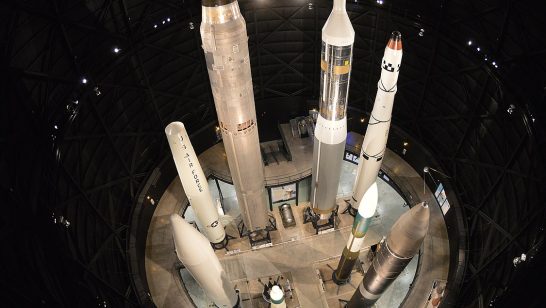
Nuclear disarmament verification and the NPT: De-politicising the political
In our latest commentary from the ELN’s New European Voices on Existential Risk (NEVER) network, Kim Westerich-Fellner explores how focusing on technical issues such as nuclear arms verification, can be used as a means of sidestepping the political disputes between States Parties that have more often than not inhibited progress and cooperation within the structures of the Nuclear Non-Proliferation Treaty (NPT).
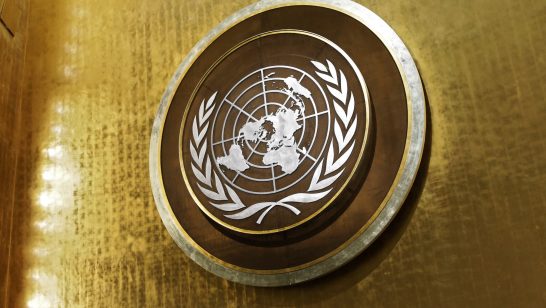
Pragmatic Steps to reinforce the NPT on the way towards the 2026 Review Conference
This policy brief outlines key issues as identified by ELN network members that will be at the centre of the 11th Nuclear Non-proliferation Treaty (NPT) review cycle and offers actionable recommendations and pathways to diplomatic success. It also charts some of the different scenarios that NPT states parties will have to consider as they prepare for the 2026 NPT Review Conference.
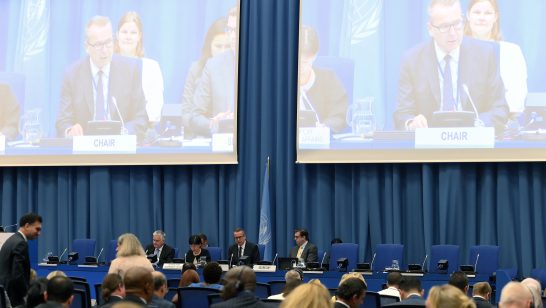
Weathering the storm: A scenario-based approach to strengthening the NPT
At a moment where the risk of use of nuclear weapons remains dangerously elevated, the PrepComs leading up to the next NPT Review Conference present an opportunity for states parties to begin establishing and advancing an agenda to reduce nuclear risks. Using a scenario-based approach, this policy brief takes stock of current geopolitical dynamics and their implications for the long-term health of the NPT and its review process.
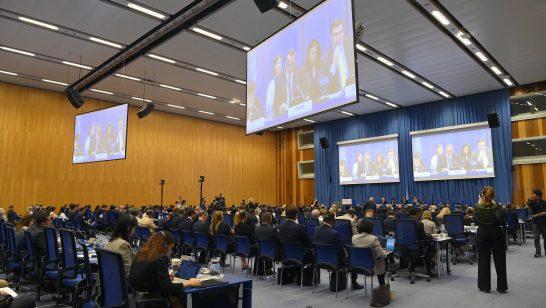
Pragmatic steps forward: How to protect the Non-Proliferation Treaty (NPT) and get the review cycle on the right track
To prevent a further erosion of the effectiveness and efficiency of the current review cycle of the NPT, there is an urgent need for action. Michael Biontino looks at what pragmatic proposals could be taken up from the 2023 PrepCom Chair’s recommendations and the working paper from the Chair of the working group on further strengthening the review process of the NPT.

Funded by
Go to websiteRelated content
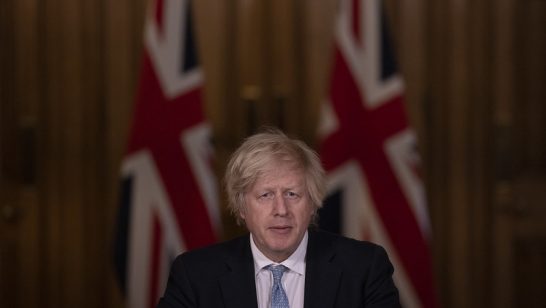
The UK Government’s change in nuclear policy could raise difficult questions with the Non-Proliferation Treaty (NPT) community
For the first time since the Cold War, the UK’s Integrated Review increases the limit for British nuclear warheads. While Russia’s nuclear doctrine and emerging technologies seem to be the most important driver behind the decision, it will be difficult for the UK Government to justify how this fits with NPT disarmament obligations.
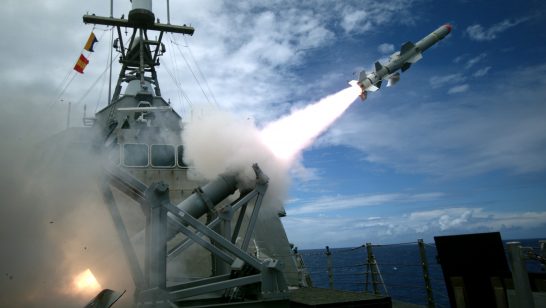
Reflections on P5 risk reduction: milestones to date and recommendations for the eleventh NPT review cycle
The recent P5 affirmation that “a nuclear war cannot be won and must never be fought” as well as the incorporation of strategic risk reduction into the nuclear doctrines and dialogues working group are impactful and are welcome first measures. The P5 must now build on this momentum to discuss a substantive programme of work which must will lead to the implementation of concrete risk reduction measures within the eleventh review cycle.
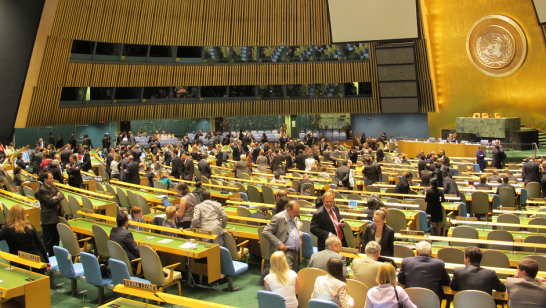
Organisational matters relating to the postponed tenth (2020) NPT Review Conference
In this report, Tariq Rauf discusses organisational matters relating to the postponement of the review conference to 2021 due to the Covid-19 pandemic and considers the proposal to convene the conference in 2022 in Vienna, Austria.





